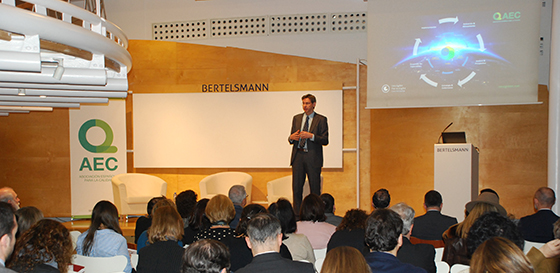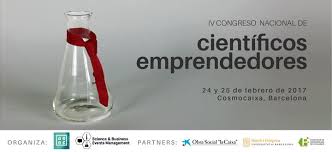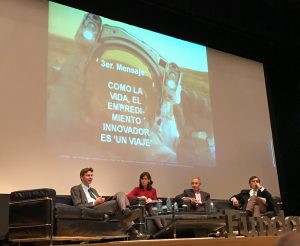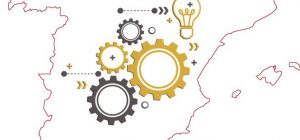 The AEC-Quality Community celebrated on February 9 its first plenary meeting of 2017. The plenary session was attended by Totti Könnölä, Managing Director & Co-founder of Insight Foresight Institute. During his keynote, Totti Könnölä reviewed the characteristics of the so-called ‘Circular Economy’ which, he said, allows the development of new ways of innovating and changing the business. In his opinion, Industry 4.0, digital transformation, Internet of Things and other technological advances offer new opportunities for circular economy.
The AEC-Quality Community celebrated on February 9 its first plenary meeting of 2017. The plenary session was attended by Totti Könnölä, Managing Director & Co-founder of Insight Foresight Institute. During his keynote, Totti Könnölä reviewed the characteristics of the so-called ‘Circular Economy’ which, he said, allows the development of new ways of innovating and changing the business. In his opinion, Industry 4.0, digital transformation, Internet of Things and other technological advances offer new opportunities for circular economy.
image©AEC

 Our Member of IFI Innovation Council, Juan Mulet participates in the panel ‘Innovation 6.0’ in the IV National Congress of Entrepreneurial Scientists in Barcelona, 24-25 February 2017. The event represents an inflexion point of entrepreneurial innovation ecosystems in our country.
Our Member of IFI Innovation Council, Juan Mulet participates in the panel ‘Innovation 6.0’ in the IV National Congress of Entrepreneurial Scientists in Barcelona, 24-25 February 2017. The event represents an inflexion point of entrepreneurial innovation ecosystems in our country.
 A reflection of the almost finished year: at the same time that the Cotec Foundation for Innovation celebrated its “the must” spring event, near Seseña a tyre bonfire was burning full flame. Those lost tyres could have become a business opportunity, an important service for our community and to the environment. Since the 70s the MIT professor Nichols Ashford, and more recently, Andrea Renda, from the CEPS European think tank, find evidence that an adequate regulation can create innovation, particularly to face the grand societal challenges. On the contrary, an inappropriate regulation can not only worsen the emerging opportunities, but prevent the potential innovators, professionals and entrepreneurs to innovate at all.
A reflection of the almost finished year: at the same time that the Cotec Foundation for Innovation celebrated its “the must” spring event, near Seseña a tyre bonfire was burning full flame. Those lost tyres could have become a business opportunity, an important service for our community and to the environment. Since the 70s the MIT professor Nichols Ashford, and more recently, Andrea Renda, from the CEPS European think tank, find evidence that an adequate regulation can create innovation, particularly to face the grand societal challenges. On the contrary, an inappropriate regulation can not only worsen the emerging opportunities, but prevent the potential innovators, professionals and entrepreneurs to innovate at all.